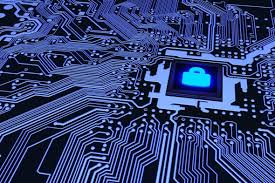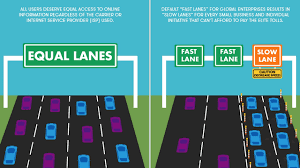Friend and Foe: Legal and Ethical Issues of the Computer

Since the day computers had been invented, there have always been those who would choose to use this great gift to the detriment of others, and those who would suffer because of it. In the early days, nobody could have foreseen what computers would eventually become, and how they would affect our daily lives.
The illegal use of computers as well as the internet is classified legally as a CyberCrime. Defined, a CyberCrime is "a crime where a computer is the object of the crime or is used as a tool to commit an offense."
(1)
Here are the top five legal and ethical issues dominating computer use today:
1. Privacy
2. Digital Ownership
3. Data Gathering
4. Security Liability
5. Access Costs
(2)
Each topic has its own set of issues and abuses, moral or otherwise.
Privacy
The idea of privacy has changed since the creation of the internet. Now every image, every video, and every post can exist individually on any server forever, with no way for the user to entirely remove it. There is also email, text messaging and other information which is meant to be private. Phishing is a common crime when it comes to the invasion of privacy. It is when an email is sent to an unaware user containing a URL or attachment, which once clicked will provide access to the users email, and sometimes even entire computer. (3) The ethical issue of privacy in our current climate is one of ultimate importance. In the case of Edward Snowden, the US government (NSA in particular) was exposed for collecting any and all computer information of Americans, such as time logged, websites viewed, and emails sent. It got to the point where the NSA was viewing texts sent from ordinary citizens' phones. This problem has not slowed in 2020, and important action would have to be made to protect the rights of everybody's privacy. (4)

Digital Ownership
In the age of easy access, when anything can be found using simple words and a connection to the internet, is the idea of owning entertainment so important anymore? However, what many users don't expect is that it doesn't end with streaming. Any digitally purchased media, upon agreement by the user in fine print, is not in fact OWNED by the buyer. When you buy music on iTunes, or movies on Apple TV, or even games on a platform like Steam or the Playstation store, you are really borrowing the license to that content, so that you may have it on your account which exists in that store. Because of this, if Apple should ever decide to shut down iTunes permanently, not only would you lose access to your collection of music bought, but it would actually be ILLEGAL to retain the content after it is removed. This is an ethical issue about ownership rights, and in the current day, new laws would need to be passed in order for everyday users to have true ownership over their purchases. (5)
Data Gathering
As mentioned in the privacy section, the privacy of any internet user can be compromised by the government for the sake of national security. However, there are also monetary reasons for monitoring your private information. There is no end to what companies will do to gather this information. GPS tracking on iPhone is used to track daily travels, wifi activity is monitored to find website traffic and daily searches, even facial recognition is used to link online accounts to the actual people in-stores and abroad. Through these methods, it's easy to find everything there is to know about any particular person. (6) The newest form of data collection is the digital assistant. There have been hundreds of cases of families with devices like Google Alexas having conversations about new clothes they need, only to see that very item recommended on Amazon the next day. This is to be expected, and mistrust of large corporations is widespread in our society. 27% of Americans don't use a home assistant because of privacy concerns(7). In the end, there is no absolute proof, so it's up to any individual to decide whether or not they trust a device not to capture their most intimate conversations.

Security Liability
In the 21st century, it is almost impossible to run a business without an online presence. Some companies even do the majority of their business on the web, especially when computers are being used in every business as it is. The real danger to large companies are hackers, people who are able to break into the systems being used, and access private information. The easiest way to damage or gain access to a computer is to use malware. Malware, or "malicious software" is a software that can get on a computer secretly through downloads or websites, and can exist there without being detected or stopped for a long period of time. Certain types of malware include viruses, worms, trojan horses and spyware. They can all damage the computer, from deleting files, to stopping basic computer function and effectively breaking it. However, spyware can be much more dangerous, as it can gather information on anything on your computer.(8). The best way to protect yourself is to use antivirus software. A good antivirus software will protect any computer against most new types of malware being released, and can warn the user of dangerous links and sites to visit. (9).
Access Costs
When you use the internet, one of the best parts is that you get access to information instantly. This is actually one of the most heated arguments amongst governments around the world. Net neutrality is the idea that all information going through the internet is equal and should be equally streamed for all those who would want to access it. Net neutrality means no website moves faster than another. Broadband providers like Verizon and Comcast are all for abolishing net neutrality, meaning that they could now charge online services to get faster speed. For instance, if Netflix pays money to their internet provider, and Disney Plus doesn't, that would mean that Netflix would load and stream much faster, and Disney Plus would be slowed down along with the rest of the traffic that didn't pay for special treatment. This would result in a loss of business since everybody would want a service that streams better. It is an important topic, especially for those who are starting a business online, and need to be noticed in order to start growing their business. (10)

Questions
1. Which of the following is not a moral/ethical issue of computer use:
a) Data Gathering
b) Phishing
c) Net Neutrality
d) Government Privacy
2. Explain why your chosen answer in question 1 is correct, and why the other answers do not make sense.
3. How does malware gain access to a computer?
a) Through downloading of information
b) Through software updates
c) Through malicious websites or links
d) All of the above
e) a and c




